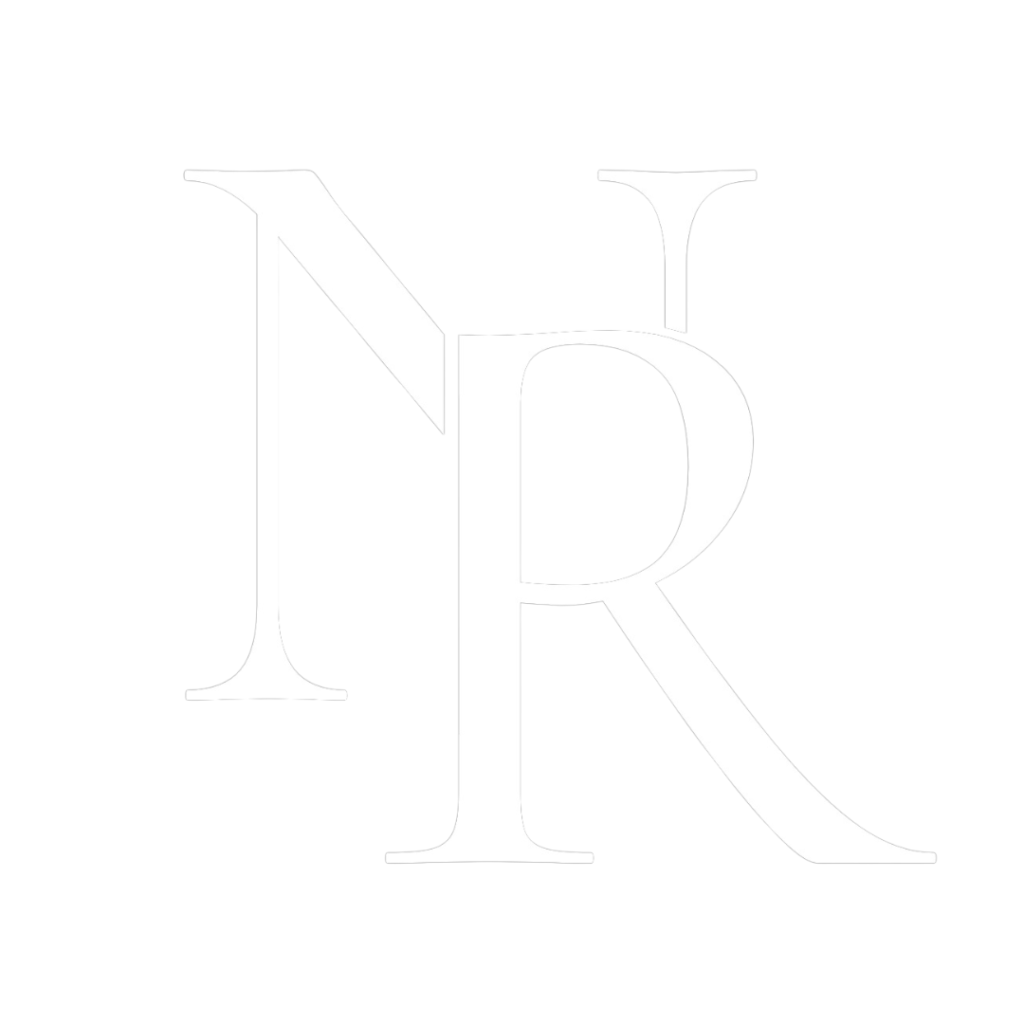In today’s competitive hospitality landscape, hotel managers are under constant pressure to fill rooms, maximize revenue, and stand out in a crowded market. Traditional marketing methods alone no longer suffice, as travelers increasingly rely on digital platforms to plan and book their stays. There are certainly more cost-efficient opportunities online that can be utilized to drive hotel bookings. Whether you’re facing fluctuating occupancy rates or rising customer acquisition costs, leveraging effective online marketing strategies can be a game changer. In this article, we explore seven proven methods that can help you capture the attention of potential guests and convert interest into bookings.
1. Google Ads
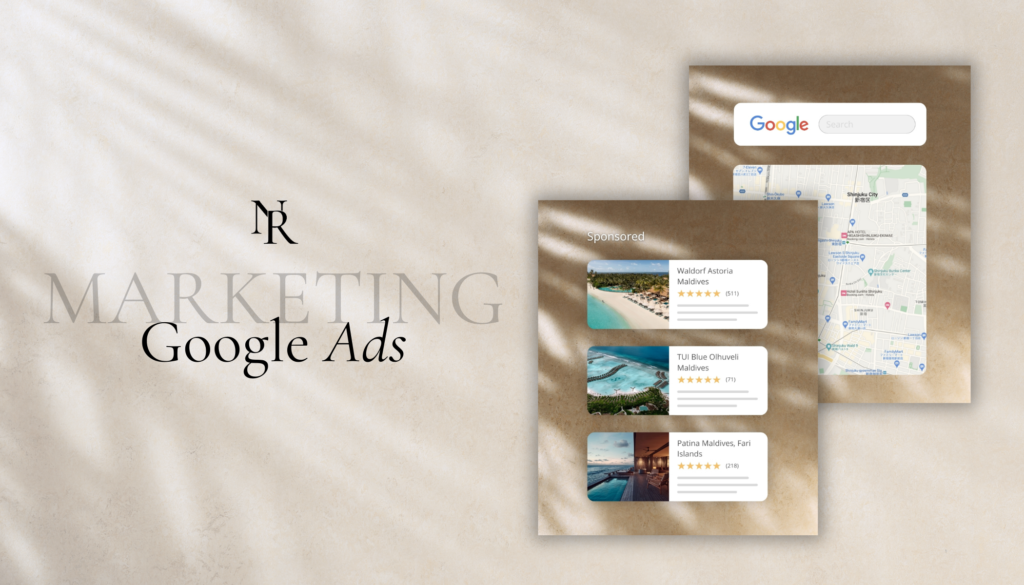
Google Ads offers a powerful platform to reach high-intent travelers who are actively searching for accommodations. By targeting specific keywords and demographics, you can connect with potential guests at the very moment they’re considering a booking. The advantage of using Google Ads lies in its ability to capture user intent in real-time, ensuring that your message is relevant and timely. With sophisticated bidding strategies and continuous optimization, even modest budgets can generate significant traffic and boost conversion rates. For example, Wordstream reports that Google Ads search campaigns have an average conversion rate of around 3.75% and can generate approximately $2 in revenue for every $1 spent (source: Wordstream).
- Targeted Keyword Campaigns: Bid on keywords like “luxury hotel booking” or “beach resort deals” to capture relevant search traffic.
- Geo-Targeting and Ad Extensions: Focus on specific markets and enhance your ads with location information, contact details, and promotional offers.
- Remarketing Campaigns: Re-engage visitors who previously explored your website but left without booking.
2. Meta Ads (Facebook & Instagram)
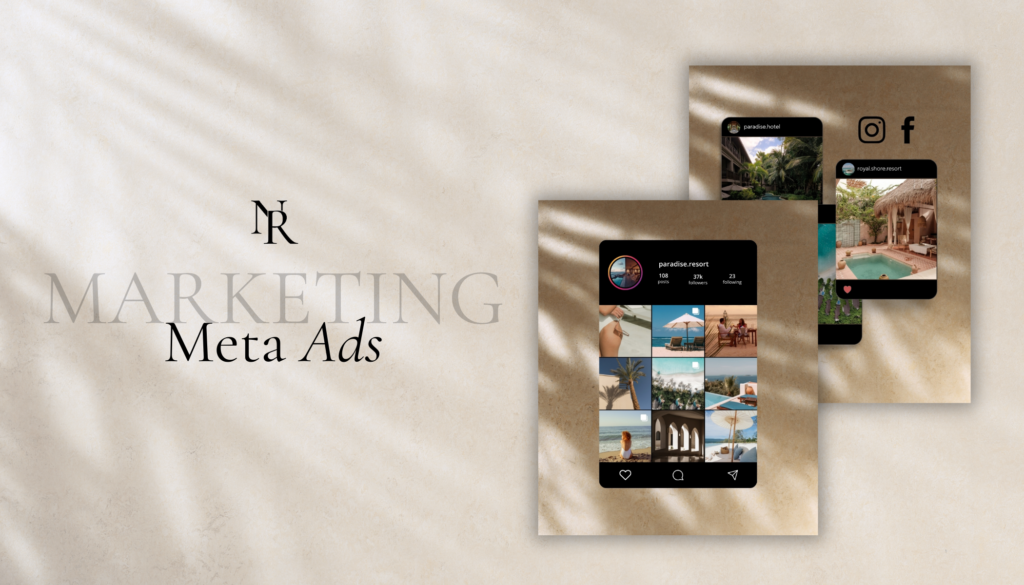
Meta Ads encompass both Facebook and Instagram, providing an expansive reach and diverse advertising formats to engage potential guests. This dual-network approach allows you to craft campaigns that are as visually appealing as they are strategic. With extensive targeting options available on both platforms, you can reach audiences based on interests, behaviors, and demographics. Real-time analytics and adaptive ad formats mean your campaigns can be quickly adjusted to optimize performance. For instance, AdEspresso notes that Facebook ads can achieve conversion rates as high as 9.21% in some industries, significantly enhancing lead generation (source: AdEspresso).
- Custom & Lookalike Audiences: Leverage user data to target past guests and create lookalike audiences that mirror your best customers.
- Dynamic Creative Formats: Utilize carousel ads, stories, and video formats to highlight your hotel’s unique features and special offers.
- Platform-Specific Strategies:
- Facebook: Use in-depth targeting and community engagement to reach a broad audience, share detailed posts, and run event promotions.
- Instagram: Capitalize on high-quality visuals and influencer partnerships to create aspirational content that resonates with travel enthusiasts.
- Engagement & Retargeting: Combine engagement campaigns with retargeting strategies to nurture warm leads and drive bookings from interested prospects.
3. Affiliate Marketing and Partnerships

Expanding your reach through affiliate networks and strategic partnerships can drive additional traffic and bookings. By leveraging trusted voices in the travel industry, your hotel can benefit from increased credibility, word-of-mouth referrals and engaging visual content that can also be used in hotel’s online presence. Collaborating with influencers, travel bloggers, and online travel agencies allows you to tap into niche markets and seasonal trends effectively. For instance, according to Influencer Marketing Hub, businesses earn an average of $5.78 for every $1 spent on influencer marketing campaigns, highlighting its significant ROI potential (source: Influencer Marketing Hub).
- Influencer Collaborations: Partner with travel influencers and bloggers to generate authentic content and endorsements for your hotel.
- OTA Partnerships: Work with online travel agencies to tap into their established customer base while ensuring brand consistency.
- Performance-Based Incentives: Implement commission-based partnerships to drive results and maximize your return on investment.
4. SEO and Content Marketing
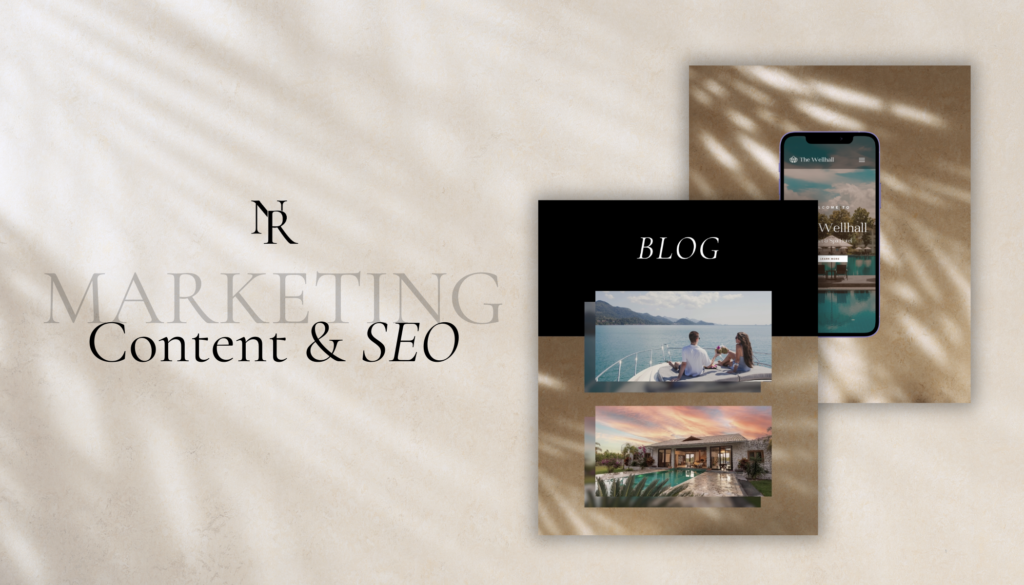
Improving your organic search presence is a sustainable way to drive consistent traffic and generate bookings over time. By investing in quality content and optimizing your site, you create a valuable resource for travelers seeking detailed destination insights and travel tips. SEO not only enhances visibility but also builds credibility, positioning your hotel as an authority in your local market. For example, HubSpot reports that inbound leads (driven by SEO and content marketing) convert at a rate of 14.6%, compared to just 1.7% for outbound leads (source: HubSpot).
- On-Site Optimization: Enhance your website’s structure, meta tags, and content to improve search engine rankings and user experience.
- Local & Destination Content: Create engaging blogs, travel guides, and local event calendars that position your hotel as an authority on the destination.
- Backlink Building: Collaborate with travel bloggers and local influencers to earn high-quality backlinks that boost your site’s credibility.
5. Email Marketing and CRM
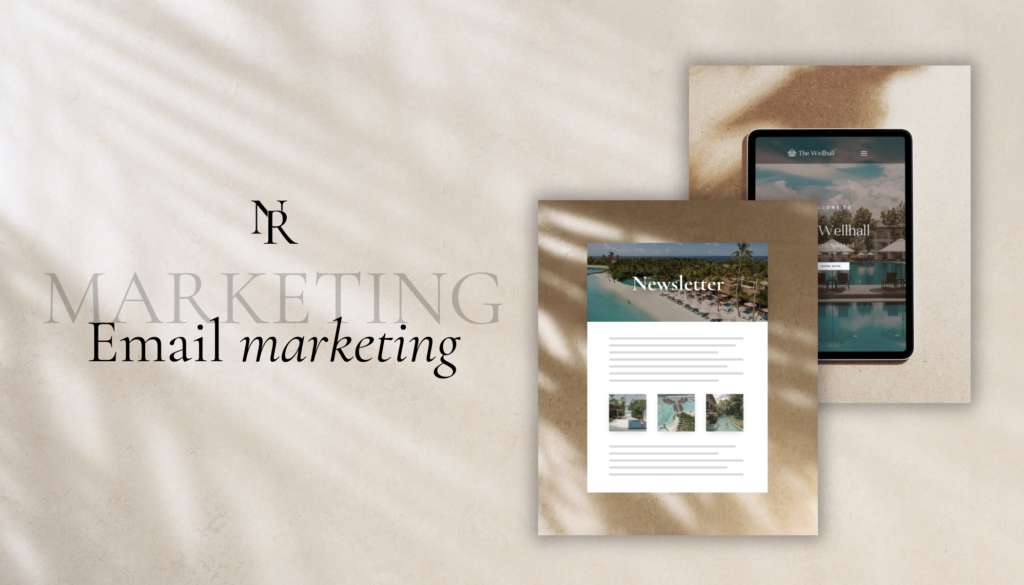
Email marketing remains one of the most cost-effective ways to nurture relationships with past guests and prospects. Personalized email campaigns can foster loyalty and encourage repeat bookings by keeping your audience engaged with tailored offers and updates. Effective CRM systems enable you to segment your customer base and deliver messages that speak directly to individual preferences. As an illustration, Campaign Monitor notes that email marketing delivers an average ROI of 4200%, meaning you can earn roughly $42 for every $1 spent (source: Campaign Monitor).
- Segmented Campaigns: Develop targeted email sequences for different segments such as past guests, seasonal travelers, or special interest groups.
- Automated Booking Reminders: Use automation to send timely reminders and exclusive offers, turning potential interest into confirmed bookings.
- Data-Driven Personalization: Analyze email performance metrics to refine your messaging and optimize future campaigns.
6. YouTube Ads
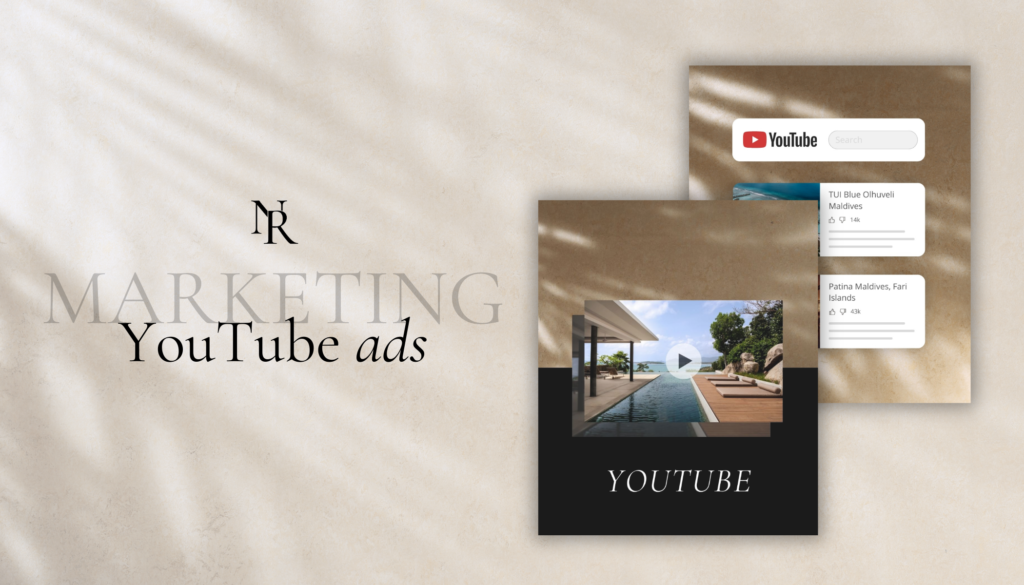
YouTube is an ideal channel for telling your hotel’s story through high-quality video content that can captivate potential guests. The immersive nature of video advertising helps convey your hotel’s ambiance, amenities, and personality in a way that static images simply cannot match. With a vast global user base, YouTube offers the potential to reach a wide audience while enabling precise targeting of niche travel segments. A study by Think with Google indicates that video ads on YouTube can boost brand awareness by up to 97%, showcasing the platform’s potential for engagement (source: Think with Google).
- Compelling Video Content: Develop short, immersive videos that showcase your hotel’s ambiance, amenities, and unique experiences.
- Precise Audience Targeting: Use demographic and interest-based targeting to reach viewers who are most likely to be interested in luxury accommodations.
- Strong Call-to-Actions: Embed clear CTAs within your videos, prompting viewers to learn more or make a booking directly from the ad.
7. Retargeting and Remarketing
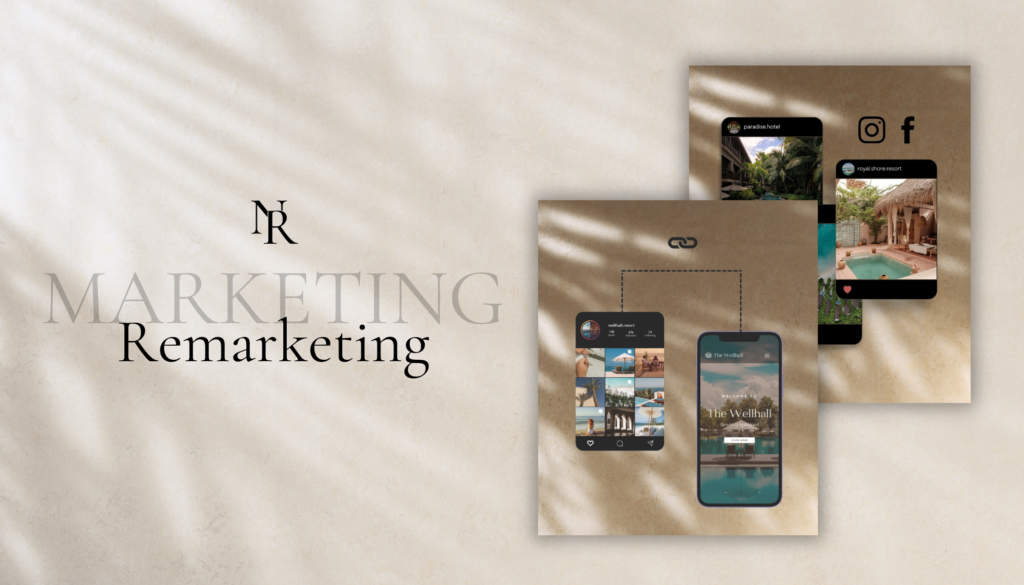
Retargeting ensures you remain visible to visitors who have already shown interest in your hotel, giving you another chance to convert them into guests. This strategy is particularly effective for capturing potential guests who are in the decision-making phase, keeping your hotel top-of-mind. By analyzing user behavior and tailoring ad content, you can deliver highly relevant reminders that encourage conversion. Studies by Criteo have shown that retargeting ads can boost conversion rates by up to 150% compared to non-retargeted campaigns, highlighting its effectiveness in capturing missed opportunities (source: Criteo).
- Cross-Channel Tracking: Deploy tracking pixels across your website to capture visitor data for effective retargeting on platforms like Google, Meta, and YouTube.
- Dynamic Ad Creatives: Showcase previously viewed rooms or tailor ads based on browsing behavior to entice users back to your site.
- Optimized Frequency: Balance ad frequency to maintain visibility without overwhelming potential guests.
Conclusion
In the fast-paced digital era, hotel managers must harness the power of online marketing to stay competitive and drive bookings. By integrating strategies like Google Ads, Meta Ads, YouTube advertising, SEO, email marketing, affiliate partnerships, and retargeting, you can create a well-rounded, data-driven approach that addresses the evolving needs of today’s travelers. These techniques not only enhance your online presence but also build lasting relationships with guests, ensuring that your hotel remains a top choice in a crowded market. Embrace these strategies to transform challenges into opportunities and watch your bookings soar.

